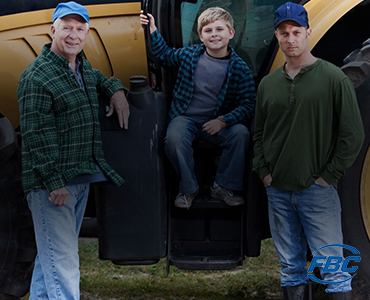Last updated: Aug. 2, 2017
Farmers preparing their wills and succession plans should be aware of the details of the capital gains exemption and the capital gains deduction.
Before you get into the various strategies available for a successful transition of the family farm to the next generation it is important to discuss the interests and views of all family members to avoid difficulties down the road.
Once the discussions have started you’ll need to consider the mechanics of protecting and easing the transfer of assets among family members.
The capital gains deduction on qualified farm property plays a major role in these transfers as it may be one of the final times the parents can take advantage of the $1 million capital gain exemption for farm land or shares of a family farm corporation.
The Income Tax Act (ITA) provides the opportunity to transfer most assets at cost using the rollover provisions, but it is important to note that it can be a tricky task to set an agreed amount for shares in a family farm corporation somewhere between cost and fair market value while using the parent’s remaining capital gains deduction.
The deduction is half of the lifetime capital gains exemption.
There is an added challenge relating to land that is inherited by a son or daughter. Under the ITA, the farm land is not considered matrimonial property. So if the son or daughter is married, the spouse is not entitled to the capital gains deduction.
The land may be considered matrimonial property if it is purchased by a single person, but in the eyes of Canada Revenue Agency only one person owns the property.
Therefore, only one parent and not both actually own the land and only one may claim the deduction.
So, the same challenges exist when giving the farmland to the spouse. It is important therefore to consider such details at the time of acquisition.
Perhaps the most common strategy for farm transfers is by way of the parent’s will.
Each parent’s will often bequeaths the farm with a portion of the land going to the surviving parent at cost and a portion to the child or children.
Since the trustee can select a value between cost and free market value, the capital gains deduction may be accessed on the deceased parent’s final tax return.
When the remaining parent dies, the balance of the farm is then distributed to the child or children.
The capital gains deduction is accessed by the last deceased parent on the remaining land on their final tax return. The children now have the entire property.
Some families’ transition plans have the children becoming owners earlier in the process.
This is when corporations and family trusts should be considered so that children can participate in the growth of the family farm.
The advantage is that families do not need to wait until the older generation dies.
Also, the farmers crystallize their capital gains deduction sooner and do not have to worry that this tax incentive might be removed before they pass on.
A lawyer and farm tax specialist should be consulted when considering incorporation.
Like most tax strategies, there are risks. Some families are concerned that passing property before the inheritance rules means the child’s spouse has a claim on generational land.
Whatever strategy you use, it is always prudent to discuss this with your tax adviser, lawyer and accountant to make sure it is the best fit for you and your family.
